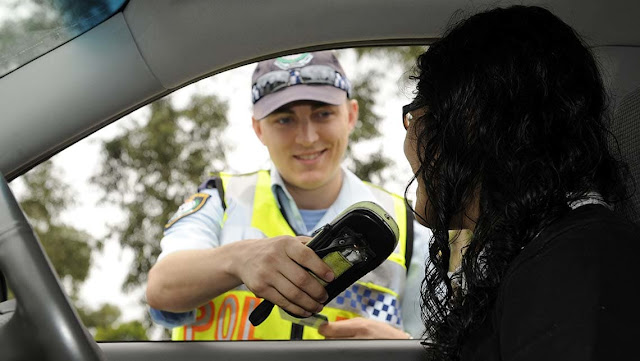Are Australians really the world's highest users of illicit drugs?
The annual release of the UN World Drug Report always creates a flurry of media interest in this country (I would imagine the rest of the world doesn't really take much interest in the contents!) mainly due to Australians and New Zealanders usually being awarded the dubious title of "the world's biggest drug users." This year was no exception!
According to the report, annual use of all drugs, except heroin, in our two countries "remain much higher than the global average". The latest available data suggests that New Zealand has the highest prevalence of the use of cannabis, with Australia not too far behind, and our use of ecstasy, although falling in recent years, continues to be the highest in the world.We are certainly seeing increasing availability of cocaine across the country and rates of use appear to be rising accordingly.
So what is the story? Are we actually the world's largest consumers of drugs and how is this report put together?
When you look at reports like this you need to remember that it incorporates information from countries all over the world. These countries all have very different legal and political frameworks, some with extremely limited capacity for collecting quality population data, particularly when dealing with information around the use of illegal drugs and some certainly have an agenda when presenting their data to an organisation like the UN. To look at these results without a very critical eye is extremely dangerous - certainly all the data we have suggests that Australians appear to have high rates of illicit drug use - but really, how can you compare our data with countries like Thailand and Indonesia, when admitting to drug use in those countries can result in life sentences in jail or even death?
There are two main factors that could contribute to the higher rates that need to be considered. Firstly, it is believed that Australians are generally more forthcoming about their drug use. We live in a society where researchers can put an advertisement in the paper to recruit for a study and drug users will come forward without fear of arrest or intimidation. There are not many countries in the world where that is the case. Even US researchers are often very surprised when that hear about how easy it can be for their Australian counterparts to collect illicit drug-related information.
Secondly, and most probably more importantly, we have great data collection instruments. The National Drug Strategy Household Survey (where most of the Australian information for the UN report was sourced) is one of the world's best. With a large sample and a questionnaire that is regularly updated, it provides accurate and up-to-date information on Australians' use of drugs that is extremely useful. It certainly isn't perfect and is often used inappropriately but it really does allow us to track trends over time. To compare this data to some of the information used in the UN report from other countries is highly problematic.
My concern about the media constantly pushing this UN line is the message it sends to the community, particularly young people. Certainly illicit drug use continues to be an issue but there are some promising signs that we rarely talk about. Use amongst secondary school students continues to fall across almost all drug types and we still need to remember that most young people choose not to use drugs! I continue to meet young people who actually think there is something wrong with them if they don't take drugs and media stories on reports like this just reinforce those beliefs.
According to the report, annual use of all drugs, except heroin, in our two countries "remain much higher than the global average". The latest available data suggests that New Zealand has the highest prevalence of the use of cannabis, with Australia not too far behind, and our use of ecstasy, although falling in recent years, continues to be the highest in the world.We are certainly seeing increasing availability of cocaine across the country and rates of use appear to be rising accordingly.
So what is the story? Are we actually the world's largest consumers of drugs and how is this report put together?
When you look at reports like this you need to remember that it incorporates information from countries all over the world. These countries all have very different legal and political frameworks, some with extremely limited capacity for collecting quality population data, particularly when dealing with information around the use of illegal drugs and some certainly have an agenda when presenting their data to an organisation like the UN. To look at these results without a very critical eye is extremely dangerous - certainly all the data we have suggests that Australians appear to have high rates of illicit drug use - but really, how can you compare our data with countries like Thailand and Indonesia, when admitting to drug use in those countries can result in life sentences in jail or even death?
There are two main factors that could contribute to the higher rates that need to be considered. Firstly, it is believed that Australians are generally more forthcoming about their drug use. We live in a society where researchers can put an advertisement in the paper to recruit for a study and drug users will come forward without fear of arrest or intimidation. There are not many countries in the world where that is the case. Even US researchers are often very surprised when that hear about how easy it can be for their Australian counterparts to collect illicit drug-related information.
Secondly, and most probably more importantly, we have great data collection instruments. The National Drug Strategy Household Survey (where most of the Australian information for the UN report was sourced) is one of the world's best. With a large sample and a questionnaire that is regularly updated, it provides accurate and up-to-date information on Australians' use of drugs that is extremely useful. It certainly isn't perfect and is often used inappropriately but it really does allow us to track trends over time. To compare this data to some of the information used in the UN report from other countries is highly problematic.
My concern about the media constantly pushing this UN line is the message it sends to the community, particularly young people. Certainly illicit drug use continues to be an issue but there are some promising signs that we rarely talk about. Use amongst secondary school students continues to fall across almost all drug types and we still need to remember that most young people choose not to use drugs! I continue to meet young people who actually think there is something wrong with them if they don't take drugs and media stories on reports like this just reinforce those beliefs.



Comments
Post a Comment